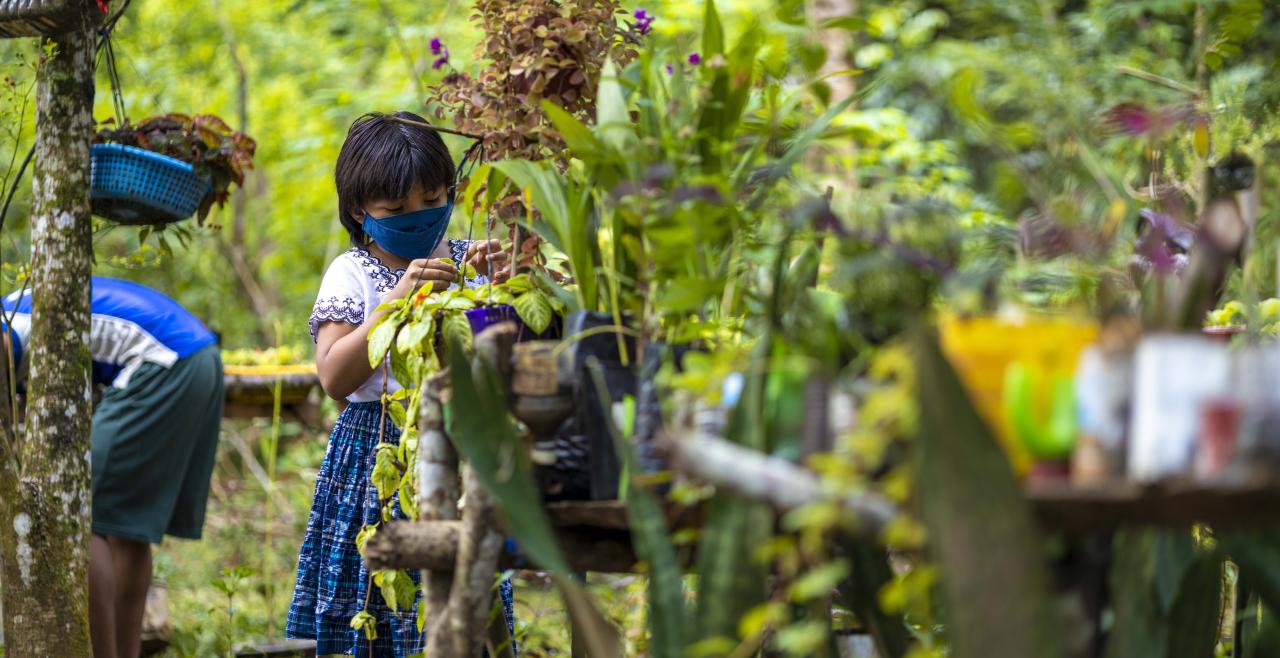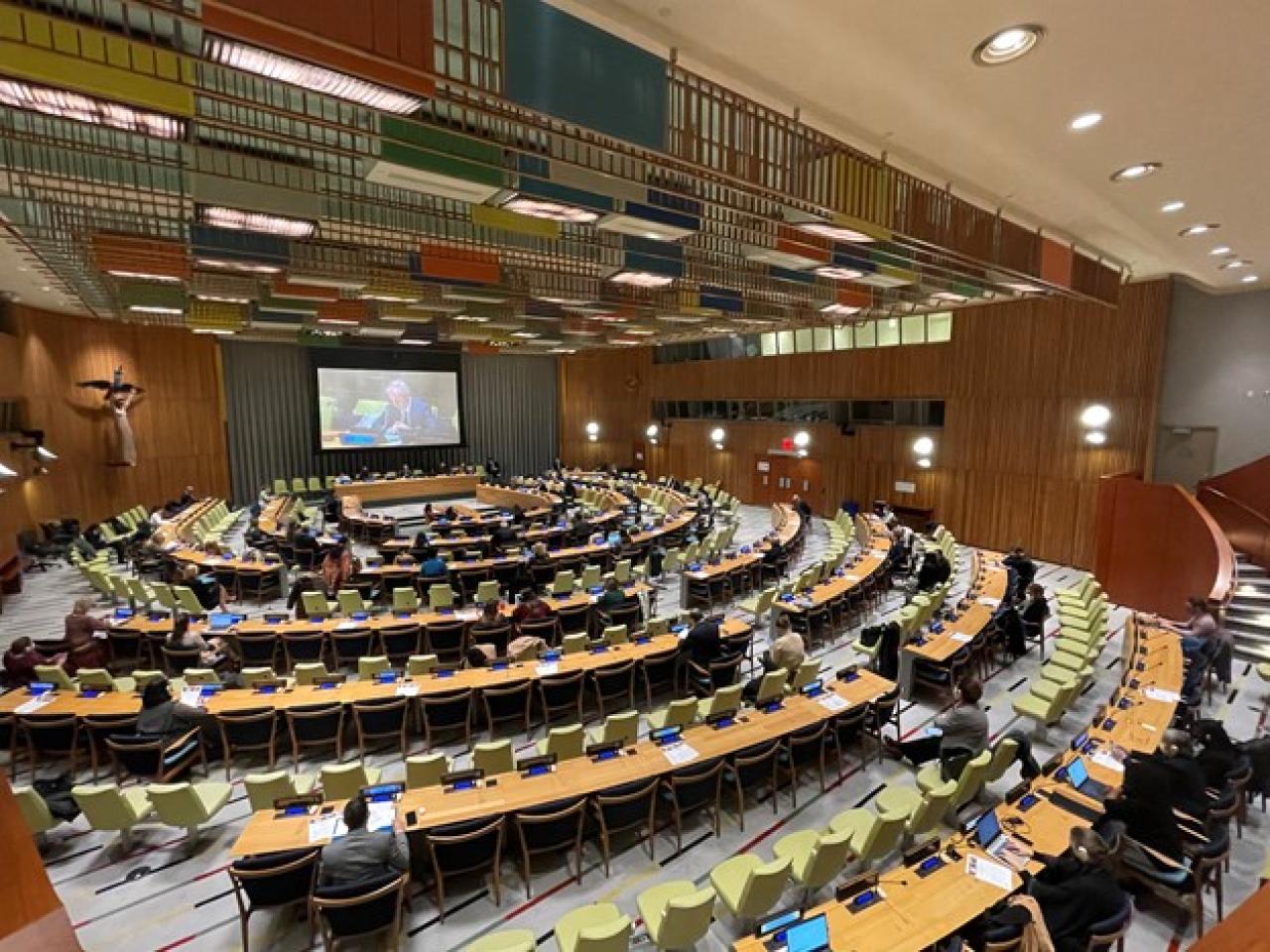Group of Friends focuses on links between gender-based violence and climate change

New York, USA - On 25 January 2022, the Group of Friends for the Elimination of Violence against Women and Girls met to discuss the link between climate change and gender-based violence ahead of the 66th Commission on the Status of Women (CSW66). The theme of the commission is ‘Achieving gender equality and the empowerment of all women and girls in the context of climate change, environmental and disaster risk reduction policies and programmes’.
The meeting was moderated by EU Ambassador to the UN Olof Skoog, who said it was “a good opportunity for us to expand our consideration of how to eliminate violence against women and girls in the context of situations where climate and environmental changes are also taking place in a way that further puts women and girls at risk.”
UN Assistant Secretary-General and head of the UN Environmental Programme (UNEP) in New York, Ligia Noronha, offered keynote remarks; Senior Gender Programme Manager at International Union for the Conservation of Nature (IUCN) Kate Owren gave an expert brief; and Guyana’s Permanent Representative to the UN Carolyn Rodrigues Birkett offered a national perspective on the issue.
“When resources are scarce or under threat, conditions become primed for gender-based violence to thrive.” - Kate Owren, IUCN
Frances Namoumou, Ecumenical Animator from the Ecological Stewardship and Climate Justice Programme, Pacific Conference of Churches, spoke about best practices. Germany’s Acting Deputy Permanent Representative (PR) to the UN Michael Geisler spoke on behalf of his country, which is Vice Chair of CSW and facilitator of the Agreed Conclusions.
“Women's role in the management of natural resources exposes them very often to direct forms of violence, particularly in the context of the changing climate,” said Ligia Noronha, UNEP. “Examples include violence perpetrated against them especially in the collection of natural resources, whether it is firewood, water or other natural resources that are required for livelihood.”
“UNEP’S recent work on gender, climate and security has shown not only that climate change impacts and exacerbates security and violence, but that violence against women can reduce whole families’ and communities’ capacity to adapt to climate change,” she said.
“When resources are scarce or under threat, conditions become primed for gender-based violence (GBV) to thrive,” said Kate Owren, IUCN.
She highlighted that women are dramatically underrepresented in environmental governance and announced that IUCN was launching a new grants mechanism this year to tackle GBV and environment linkages.
Guyana PR Carolyn Rodrigues Birkett said that disasters caused by climate change hit indigenous and rural communities in her country especially hard.
"Frustration in households which have experienced massive losses is [now] confined to small spaces and shelters, often resulting in increased domestic and gender-based violence.” - Guyana PR Carolyn Rodrigues Birkett
“I know a few villages that had to relocate permanently due to the effects of climate change. Frustration in households which have experienced massive losses is [now] confined to small spaces and shelters, often resulting in increased domestic and gender-based violence,” she said.
“Victims who are primarily women and girls are made more vulnerable by reduced access to support services.”
She said that among other strategies, the government has launched a hotline through the Spotlight Initiative and a mobile phone app to help reach survivors of violence.
Frances Namoumou, Pacific Conference of Churches, said that it was critical for grassroots and civil society organizations to be included in national and government responses to climate change and emergencies.
“Just recently, with COVID here in the region, we've seen the collaboration between civil society organizations and national forces. Civil society partners and feminist groups are being included in national emergency response teams or task forces.”
Germany’s Acting Deputy PR to the UN, Michael Geisler, said that this year’s CSW presented an unprecedented opportunity.
“We see this as a big chance that the UN membership might, for the first time, acknowledge the repercussions of climate change and disaster on women and girls,” he said.


